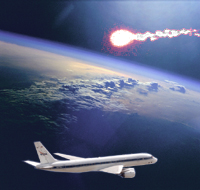|
STARDUST REENTRY GALLERY 2
<- Previous Gallery | Next
Gallery ->
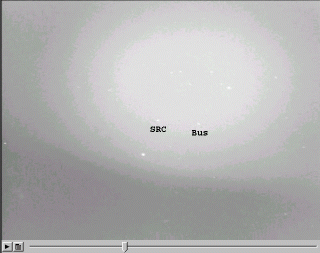 |
Time
lapse of SRC and bus separation captured by the AEOS
telescope at the Air Force Research Laboratory's site
atop the dormant volcano Haleakala on Maui, HI [2.3 Mb].
|
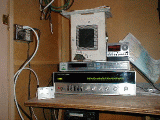 |
Listen to the reflections of far away radio transmitters bouncing off the ionized trail of the Stardust capsule in this SRC
FM radio scatter recording (link) by Stephen P. McGreevy, Keeler,
CA
|
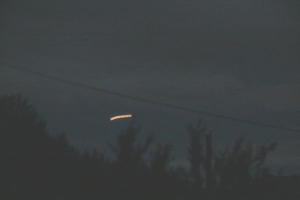 |
Bill
Kissam of Pine Valley, UT, obtained this nice series of digital images, showing the color of the SRC in later parts of its trajectory. The slightly out-of-focus images prevent saturation and thus show the real color.
|
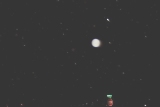
|
Tana Taylor of Batttle Mountain, NV, obtained this widefield photo. Camera: Kodak EasyShare DX 4900. "It looked liked a large bright light with a golden color halo as it flew towards me", says Tana.
|
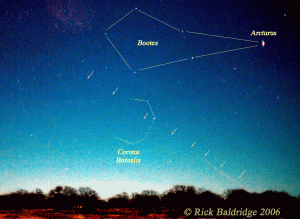
|
Rick Baldridge from Red Bluff,
CA, obtained this long-exposure image of the SRC streaking through Corona Borealis. He also provides other usefull information at this Gallery.
|
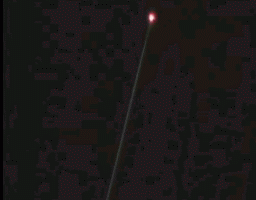
|
This video (957 kb) was obtained by Tim
Harris, from a location N 40.33, W 114 near the UT/NV border
|
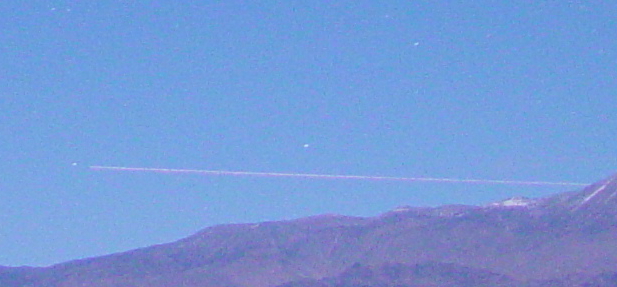 |
Earl Wilson of the China Lake Astronomical Society used a Sony F-707 at f2 and exposure time 30 seconds beginning at 0957:30 UT (15 January 2006) to obtain this streak photo. He was looking north from a
location about 20 miles south-east of Lone Pine, California - the trail is seen crossing from Cepheus into Cygnus and then dissappers behind the Inyo Mountains. The elevation of the reentry trail was about 4.56 degrees. The star just to the left of the beginning of the trail is SAO 32862, in Cepheus.
|
| |
|
This forum is compiled by , SETI Institute, and Jim Albers, San Jose Astronomical Association. Please report errors in credit and photo use to our .
|
